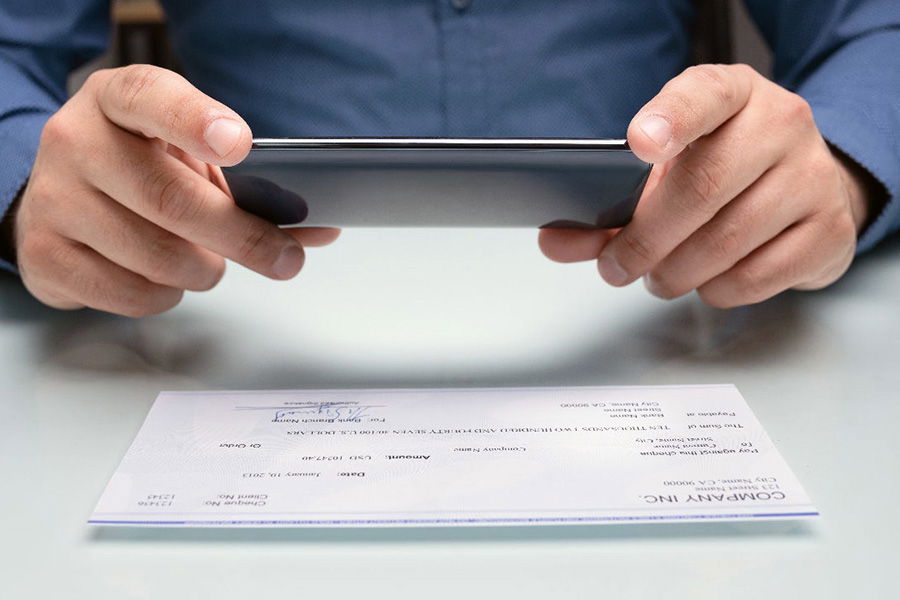Opening a new bank account with a bank or credit union often comes with a sign-up bonus, but one requirement to qualify for it is setting up direct deposit.

You need to know what counts as direct deposit, as this requirement applies to various types of accounts such as personal checking, business checking, savings and debit card accounts.
With this knowledge, you’ll be able to take advantage of these bonuses and enhance your overall banking experience. In this article, we will discuss the details of direct deposit and explore its importance in today’s banking landscape.
What is direct deposit?
Direct deposit allows your employer to deposit your paycheck directly into your bank account, rather than giving you a paper check to deposit yourself. Setting up direct deposit is relatively simple, you just need to provide your employer your bank account information, including routing number and account number.
This is much more convenient for your employer and gives you quicker access to your money.
Besides employers, other entities that commonly use direct deposit include:
- Government agencies for disbursing Social Security benefits, tax refunds, pension, unemployment benefits, and other government payments
- Financial institutions for automatic bill payments, interest payments, and other transactions
- Non-profit organizations and charitable foundations
- Insurance companies
- Rental properties
- Some online merchants, marketplaces, and apps
How to Set up Direct Deposit
Setting up direct deposit is a quick and easy process that can save you time and hassle. Here are the steps to set up direct deposit with an employer and for government benefits, as well as some tips to ensure a successful setup.
Steps to set up direct deposit with an employer
- Contact your payroll department and ask for a direct deposit form.
- Fill out the form with your personal information, including your name, address, and bank account number and routing number.
- Submit the form to your payroll department.
- Verify that your next paycheck is deposited directly into your account.
Steps to set up direct deposit for government benefits
- Contact the agency that disburses the benefits, such as the Social Security Administration or the Department of Veterans Affairs.
- Ask for a direct deposit enrollment form.
- Complete the form with your personal details, including name, address, bank account number, and routing number.
- Submit the form to the agency.
- Confirm that your benefits are being transferred directly to your account.
Tips for ensuring successful direct deposit setup
- Double-check the routing and account numbers before submitting the form to ensure they are correct.
- Verify with your bank that your account is set up for direct deposit payments.
- Keep a copy of the direct deposit form for your records.
- Monitor your account to ensure that your deposits are being made on the correct date.
- If you notice any issues, contact your employer or the agency immediately to resolve the problem.
By following these steps and tips, you can easily set up direct deposit and enjoy the convenience and security it offers.
How long does it take for direct deposit to activate?
Direct deposits may take a couple of weeks to be processed. Typically, it takes two pay cycles for your employer to process your request. You can also contact your employer to get a better idea of how long it will take.
Unlocking Bonus Rewards with Direct Deposit
As mentioned, direct deposits are a common requirement for many bank and credit union sign-up bonuses. While the rules may differ from one financial institution to another, banks generally require you to direct deposit a certain amount every month to receive the sign-up bonus.
By requiring direct deposit, the bank ensures that you receive a steady flow of money in and out of your account. However, keep in mind that bonus terms and conditions differ from one bank to another. Before accepting a bonus, be sure to thoroughly read the fine print to understand the requirements.
If you’re still unsure, don’t hesitate to reach out to the bank or credit union for clarification. With a clear understanding of direct deposit requirements, you’ll be able to take full advantage of bank bonuses.
Getting Paid Early with Direct Deposit
Did you know that with some online banks, you can get your paycheck up to two days sooner by setting up direct deposit?
Chime® and Current are two great options that are worth checking out. These banks utilize early direct deposit to make your paychecks available to you as soon as they receive them from your employer. This allows you to get paid up to two days2 earlier.
What counts as a direct deposit?
Direct deposit is most often associated with your paycheck. However, you can also set it up for other types of payments, such as tax refunds, government benefits, and more.
As mentioned, each bank and credit union has its own rules as to what qualifies as a direct deposit. To learn more, be sure to reach out to them or visit their website for more details.
See also: How to Get Direct Deposit without a Bank Account
What doesn’t count as a direct deposit?
There are a few things that typically do not count as direct deposit:
- Deposits made via ATM or in-person at a bank branch.
- Deposits made via mobile deposit, which is a service offered by some banks that allows you to deposit a check by taking a picture of it with your smartphone and submitting it to the bank electronically.
- Deposits made via mail, which is a service that allows you to mail a check to your bank and have it deposited into your account.
- Deposits made via a prepaid debit card or a reloadable card, which is not a checking or savings account and cannot be used to set up direct deposit.
- Deposits made via a third-party electronic payment service, such as PayPal, Zelle, Venmo, or Cash App.
Banks and credit unions may have different or specific requirements, you should check with your bank to be certain what it considers as direct deposit. Some may even allow the methods mentioned above, but in most cases, they don’t.
In general, direct deposit refers to the electronic transfer of funds directly into bank accounts, typically made by an employer or government agency.



